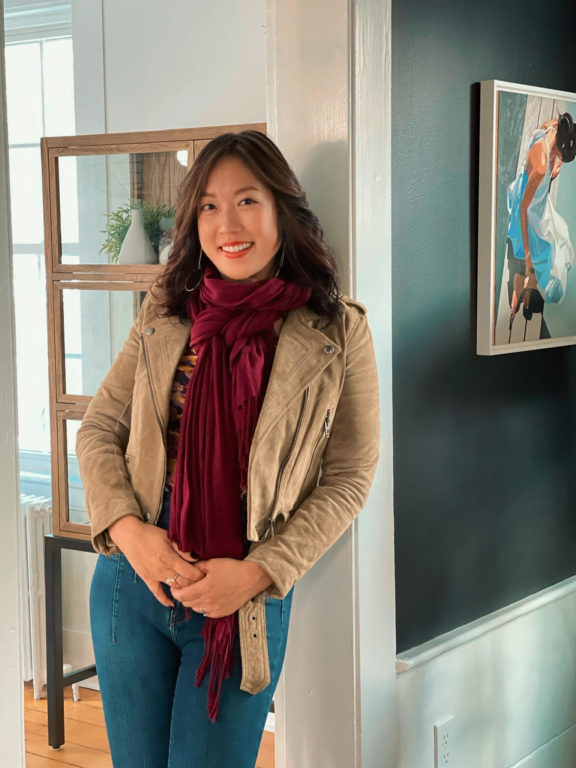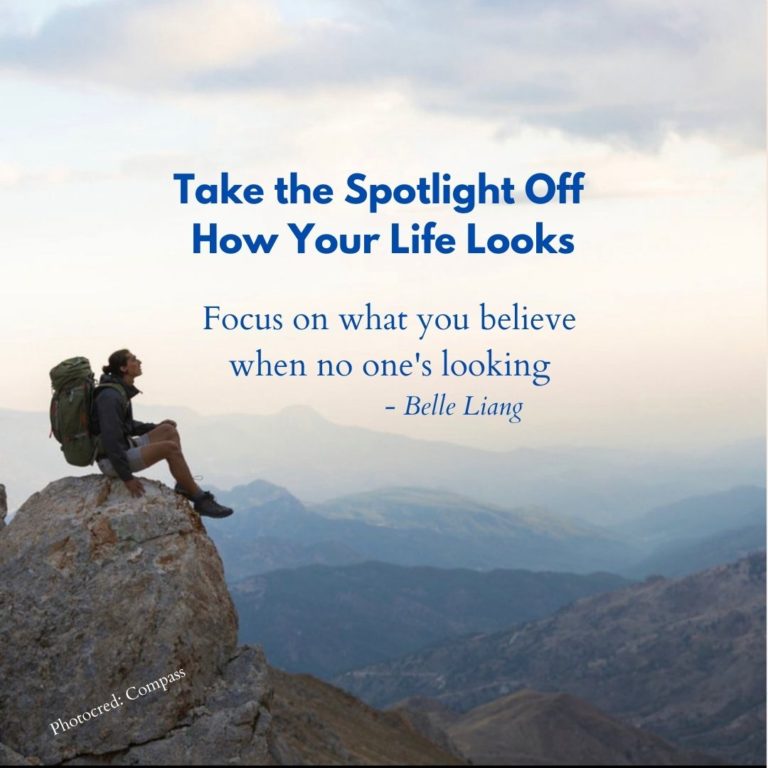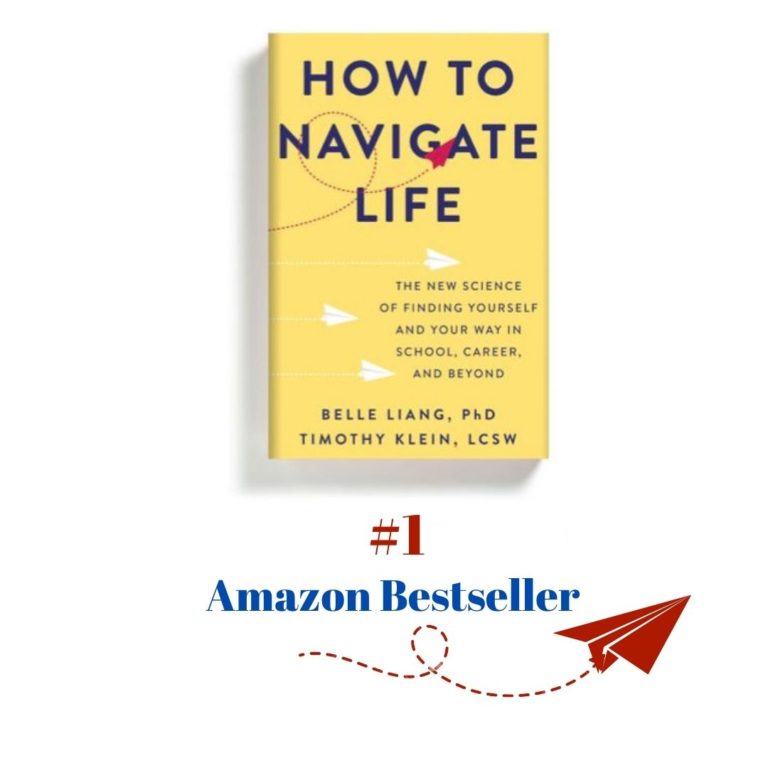
On UniteBoston’s blog this week, we are introducing a new book, “How to Navigate Life: The New Science of Finding Your Way in School, Career, & Beyond (published by St. Martin’s Press). The book is a practical guide for students, families, educators, and professionals to “cut through stress and performance pressure, and find a path to purpose.” Already, in the first week the book has hit #1 Amazon Bestseller, Fortune Magazine Recommended Reads, and has been featured on NPR’s Here and Now. Dr. Belle Liang is co-author, professor of counseling psychology at Boston College, and a clinical psychologist. She is also founder of the Purpose Lab, and member of Grace Chapel. Read an excerpt from the book below, where she shares her own journey of finding a sense of calling and belonging.

This is a book about how to equip young people to navigate school, career, and life with joy and excellence. The first step to doing this job well as parents, educators, or life mentors is to know ourselves. We have to be students of ourselves—by learning who we are, where we came from, what we believe, and where these beliefs came from. How we raise and guide our people is deeply influenced by our own stories. If we’re aware of the core values and scripts that were passed on to us from our families of origin, we can be compassionate toward ourselves—understanding our knee-jerk reactions to our students and their life choices. We can be intentional about what we choose to pass on to the next generation. This has been true for us, as you’ll see from our stories.
Belle’s story: I am the middle daughter of first- generation Chinese immigrants who, like their compatriots, sacrificed heroically so that my brothers and I could get an education in the United States. My father borrowed the little money his sister had to come to the United States to pursue his graduate degree on a student visa. This decision came with another, more significant cost: leaving behind his wife and six- week- old firstborn child, my brother. It was two years before they were reunited on American soil. My mother abandoned her career aspirations when she arrived in the United States, leaving her family and home to live in the United States to pursue his graduate degree on a student visa. This decision came with another, more significant cost: leaving behind his wife and six- week- old firstborn child, my brother. It was two years before they were reunited on American soil. My mother abandoned her career aspirations when she arrived in the United States, leaving her family and home to live in a country where she struggled to work, communicate, and feel a sense of belonging.
She pushed through language barriers to befriend neighbors, so I would have neighborhood playdates. She clipped coupons, so I could buy trendy clothes. All of this probably helped me fit in with the popular kids at my affluent suburban high school. My parents relished the thought that I was a teacher’s pet, two-time homecoming princess, student leader in clubs, class government officer, and a graduation speaker at the John F. Kennedy Center. These “achievements” were shamelessly evoked at afternoon tea with the aunties, because they satisfied every-one’s expectations for me. They were proud that I “fit in” so well.
All their dreams and efforts to make ends meet were fueled by hopes that my brothers and I could achieve more. They expected that we would. It was never a question of “whether I would go to college,” it was a matter of where I went and what I did there to become “successful.” I internalized the cultural value that the point of education was to achieve financial security and respect in society. Like other “first-gen” people, we bought into Horatio Alger’s myth that if you worked hard, you could achieve the American dream, not only for yourself, but to validate your parents’ sacrifices. All of this prepared me to be the most successful student I could be. A rule-following, risk-averse, people-pleasing success. I was the opposite of Cheryl Strayed in the wild, driven by a free spirit to conquer the dangers of the Pacific Crest Trail. My ambition was to take the safest path to financial security and prestige.
I had gleaned from my upbringing that there were certain careers that were especially acceptable. Doctor, lawyer, engineer. I later realized that these were actually the acceptable choices for boys, but that there were alternatives for girls.
Up to this point, whenever faced with a big decision about school, work, and life at large, I asked myself: “What should I do?” Often, the answer that felt right to me was the one that matched the expectations of those around me. After two years of bouncing around multiple majors in the hard sciences and internships in health fields, a well- meaning auntie offered me this career guidance: “Don’t work so hard, you’ll prematurely age and lose your beauty. Just take good care of your hair and skin (your best assets), marry a doctor, and you’ll be fine.”
Imagine how those words landed on an American college woman. Yep, just the nudge I needed to begin listening more closely to my own heart. And trusting the wisdom and direction that could be found there. The women in my life were smart and competent, while content to sit in the back seat. Few were trailblazers, civic leaders, public speakers. With the most honorable intentions, they sacrificed personal goals and de-rived their identities from others. I realized that the standard- bearers I had followed were no longer a perfect match with my own journey. My spiritual-faith adventure provided fresh insight and courage for rewrit-ing the script, following my call.
When I announced to the family that I planned to pursue a career as a psychologist, it was as if I had announced that I was dropping out of college. Had I thought this through? Could I get a job doing such a thing? They saw a huge distinction between doctors who focused on people’s mental health versus those who treated their physical health. But they comforted themselves thinking girls shouldn’t work too hard, and that I would be fine as long as I married a real doctor, who could take care of me.
My transformation continued during graduate school, where I met a mentor and role model who believed in me and nurtured my creativity and confidence. She introduced me to community psychology, a field focused on addressing systemic injustices and partnering with disadvan-taged and marginalized people. I felt such a sense of mission . . . Here was a way that my values, strengths, and skills aligned with meaningful work that could make a difference in the world.
I need to say that as I write this, I am so genuinely grateful to my cultural roots, family, and mentors for watering the seeds of my purpose today. At the same time that there are cultural and moral virtues to my story that I deeply cherish (like respect for your elders and sacrifice for others), there are imperfections. And all of it inspires my current work. I see that while the world is progressing, stories like mine reflect an ongoing ethos that reaches beyond the immigrant experience. In hundreds of our research interviews and surveys, adolescents (and their parents) lamented: “I’m living someone else’s life. I don’t know who I really am and what I’m really living for, apart from others’ expectations of me.” Similarly, I’d been basing my identity on what others told me about myself when I was a child. Trying to mold myself into someone’s stereotype of me left me exhausted and confused. But as my understanding of who I am came into sharper focus during my later college and adult years, this understanding became my guide. It continues to shape what I value and believe, and how I feel, act, and connect. Brené Brown calls this embracing of who you really are true belonging:
True belonging is the spiritual practice of believing in and belonging to yourself so deeply that you can share your most authentic self with the world and find sacredness in both being a part of something and standing alone in the wilderness. True belonging doesn’t require you to change who you are; it requires you to be who you are.
She goes on to say: “True belonging is not something that you need to negotiate externally, it’s what you carry in your heart.”* This internal belonging, this sense of understanding who I was—what I stood for, what I had to offer in the world—began to free me from the need for external approval. It’s been a glorious adventure to discover my innermost being, and to realize that what I’ve turned up there can meet a great need in the world.

Leave a Reply